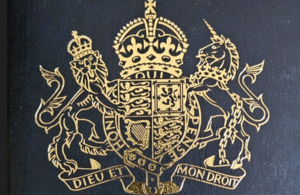Shoplifting was also on the rise, surpassing half a million recorded offences for the first time, according to ONS data
Personal thefts recorded by police in England and Wales were up 22% in 2024 from the previous year, according to official figures. Data from the Office for National Statistics (ONS) shows police recorded 152,416 thefts from the person offences last year, the highest since the current data methods began in 2003.
Shoplifting was also on the rise, surpassing half a million recorded offences for the first time. Meanwhile, the number of homicides was the lowest for a decade, and overall crime was still below pre-pandemic levels and down more than 75% since the mid-1990s.
Crime up 10% over past year in England and Wales, ONS says There were also 54,587 knife crime offences recorded by police in 2024, up 2% from the previous year, while firearm offences decreased by 20%. Overall, police recorded 6.64 million crimes in England and Wales last year – down 1% from 2023.
Responding to the data, policing minister Dame Diana Johnson said the government “will not tolerate the criminality blighting our communities”. She added: “That’s why we’re putting almost 3,000 more bobbies on the beat in neighbourhood roles this year.”
To build a bigger picture of crime in England and Wales, the ONS also refers to estimates from its crime survey. The Crime Survey for England and Wales (CSEW) is a face-to-face survey which asks people aged 16 and over about their experiences of crime in the past year.
It estimated that there were 9.6 million incidents of what is described as “headline crime” in 2024 – which includes theft, robbery, criminal damage, fraud, computer misuse, and violence with or without injury. The latest CSEW survey reported that at the end of 2024, people’s experiences of theft had gone up by 13% – including a 50% rise in theft from the person offences, such as mobile phone theft. Theft from outside a dwelling – such as courier packages being taken from people’s doorsteps – went up by 19%. Fraud incidents, including bank and credit account fraud, were up by 33% to around 4.1 million incidents – with around 3 million incidents involving a loss and 2.1 million victims fully reimbursed in these cases.
Meanwhile, ONS data showed no significant change in people’s experience of violent crime, which remained at the lowest level since equivalent records began in 1981. The ONS reported that, over the last 10 years, there has been an increase in sexual assault.
In the year to March last year, 2.6% of people aged 16 to 59 reported experiencing sexual assault, including attempts. Ten years earlier, the proportion was 1.5%. There has been a fall in domestic abuse over the same period, with 5.4% of those aged 16-59 reporting they had experienced domestic abuse in the previous 12 months, down from 6.5% a decade earlier.
Meanwhile, Police in England and Wales will be given new powers to search homes without a warrant for stolen mobile phones under major legislation which targets theft, street crime and anti-social behaviour.
The Crime and Policing Bill is at the heart of what the government calls its “Safer Streets mission” and ministers want it to become law by the end of the year.
Home Secretary Yvette Cooper told the BBC the bill would address an “epidemic of street theft”, including a rise in phone and bag snatching and shoplifting, and introduce new “Respect Orders” with restrictions similar to Anti-Social Behaviour Orders (Asbos).
The Conservatives say the plans have been “copied and pasted from the last government’s announcements”.
Under the bill, police would gain the power to enter and search a property without a court warrant for a stolen mobile phone or other items that have been electronically tracked, such as laptops or Bluetooth-tagged bikes. The power would mean that victims of mobile phone thefts who track their device while it is in the hands of a criminal could call on police to recover it quickly.
Cooper said that she understood the “incredible frustration” of phone theft victims who say “I can track it, I can see where it is – it’s in this particular house, it’s in this particular location”. “And yet the police can’t act fast enough to be able to track it down,” she added.
Cooper said “we have to have the stronger powers and action [and] the police say they welcome this”. Asked about the reliability of locator apps, where people can use another device to help track down the location of their missing or stolen phone, being used in police searches, Cooper said, “Police will have to make decisions [and] it will need to be signed off by a police inspector, and [they will] need to make decisions about where the evidence is good enough for them to be able to act.”
She added that the bill would include scrapping a “ludicrous” £200 threshold for shoplifting, which meant lower value thefts were not currently prioritised by police.














